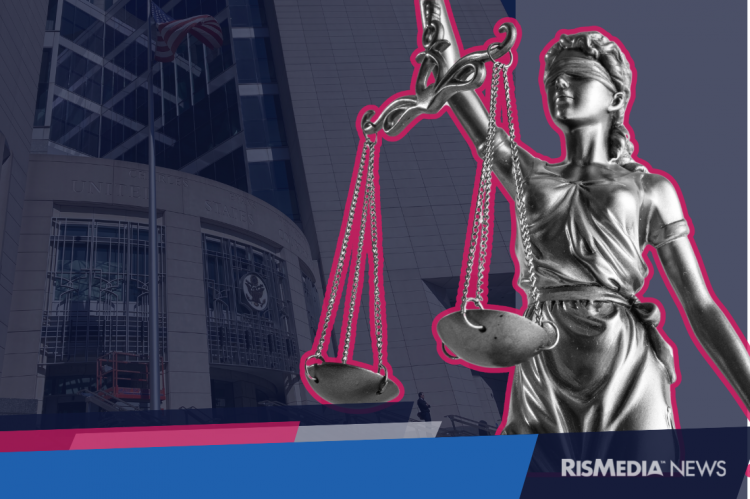A 40-page court ruling by Judge Stephen R. Bough, and a transcript of the settlement proceedings released by the court regarding big brokerages in class-action commission lawsuits, revealed new details regarding settlement approval and reasoning for Judge Bough’s rejection of arguments from objectors at the May 9 hearing.
Most notably, Bough addressed alleged conflicts of interest, and also lawyer fees. Legal teams are now eligible to collect one-third of settlement funds—a whopping 33.3% of $200 million. Sixty one people have opted out of the settlement.
Bough gave his final approval to settlement agreements struck by big brokerages in class-action commission lawsuits late last week, granting broad immunity from claims by sellers that these companies conspired on rules that inflated real estate compensation at the expense of consumers.
The ruling does not include a settlement struck by the National Association of REALTORS® (NAR), which will receive a separate hearing in front of Bough in November before being finalized.
Anywhere, RE/MAX and Keller Williams each agreed to pay $83.5 million, $55 million and $70 million, respectively—and will be able to move forward with at least some certainty regarding their protection from litigation.
The firms agreed to policy changes, such as no longer requiring agents to be members of NAR, or follow their code of ethics or MLS Handbook.
Conflict of interest claims
According to the court hearing transcript, Judge Bough explicitly acknowledged accusations of conflicts of interest in the case, referencing an email from Anthony Phillips, president of the Luxury Companies in Las Vegas, Nevada.
Phillips’ letter detailed other concerns of the settlement such as overall benefit to class, harm to members of the department of defense and the fact that commission fees in Missouri are still lower than numerous other countries after adjusting currency values—Hong Kong, China, Ireland and Australia were examples provided.
Judge Bough’s wife—also a lawyer—is on the city council of Kansas City, and received donations from one of the plaintiff’s lawyers, Matt Dameron, in 2019, and others from the Kansas City Association of Realtor PAC, Bough said.
A few prominent members of the real estate community have sought to cast doubt on the fairness of the Burnett proceedings over the last several months, with Anthony Lamacchia, owner of Lamacchia Realty, notably confronting plaintiff’s lead attorney Mike Ketchmark with similar accusations to Phillips’ in a livestreamed debate earlier this year.
Alleged conflicts were addressed by Bough almost immediately, and he was quick to poll plaintiffs and defendants on whether or not they felt the claims were enough of an issue that he needed to “conflict” himself off the case. Lawyers for both plaintiffs and defendants individually answered they did not believe Bough needed to step aside based on the campaign contributions.
“But I did discover in particular that in 2019, Mr. Dameron did in fact donate to my wife, but that was my first opportunity ever to look at one of her financial disclosures. So it was interesting for me to discover that on October 29th, 2019, that the Kansas City Association of Realtors PAC donated to my wife,” Bough explained.
“So I believe the ethics rules require me to ask each of the parties if they would like to conflict me off the case, and if you would, I’ll be more than glad to step down based upon that,” he continued.
Bough said that if he was not made aware of such disclosures, “I can just in essence, not have to know who donated to her, and that’s how it can go.”
But, once financial transactions among members of the case were brought to his attention, measures had to be taken, such as putting names on the “conflict list” and asking case members their comfortability level, to ensure legal compliance and ensure case fairness.
“Mr. Phillips also references sending this on to the U.S. Attorney, the Department of Justice and the FTC; and so I beat him to the punch and sent it on to Teresa Moore downstairs, our U.S. Attorney, so that she can do what law enforcement needs to do for judicial ethics,” Bough said.
Lawyer fees
Legal teams associated with these commission suits were granted a hefty penny by Judge Bough, as he approved the attorney fees, which make up about a third of the settlement funds—33.3% of $200 million.
“Moreover, this case faced low odds of early settlements given the attack on practices that were central to the real estate brokerage industry,” Bough wrote in court filings.
Bough also mentioned in filings how antitrust claims are “especially complex, expensive, and difficult to prosecute,” and “courts have recognized that antitrust settlements should result in attorneys’ fees equal to one-third of the fund.” Bough followed up, stating that it was undeniable that these cases were challenging to prosecute.
“Courts often judge class counsel’s skill against the ‘quality and vigor of opposing counsel,’” Bough continued in the court filing. “Here, Class Counsel faced off against no fewer than twenty highly-respected law firms over the course of the litigation. Although Class Counsel’s team included some of the country’s most accomplished class action and trial lawyers, Defendants also hired some of the country’s most prominent and respected defense attorneys. This weighs heavily in favor of the requested award.”
More settlements still await approval from the court, and the total amount agreed upon sits at roughly $940 million. One objector made claims that individual homesellers will receive between roughly $5 and $10.
“Now, there are 37 million people, as we understand it, that have a claim. They’re going to receive between $5 and $10 each. That just does not seem fair. With respect to the franchisees, the franchisees will be released, and they’re not going to have to pay anything for being released,” said Patrick Knie, lawyer for objectors.













Every single lawyer charging 30-40% in every case like this is not considered price fixing and keeping attorney’s fees artificially higher than they need to be. But 5-6% for buying or selling your largest asset is price fixing. Please explain this, a friend is asking.